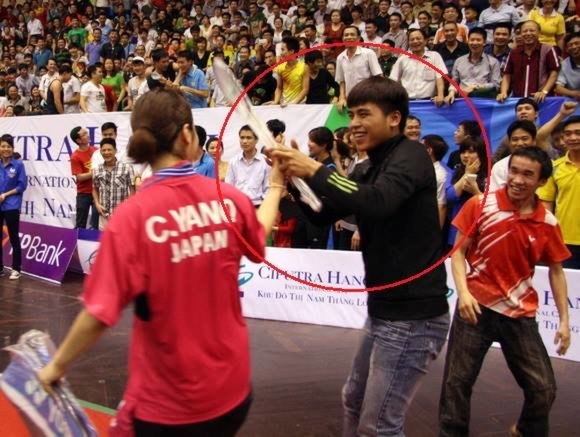Several Vietnamese academics, culture researchers and artists have pointed to several shortcomings in a draft behavioral etiquette code intended for public facilities and communities in a bid to improve the attitudes adopted by those living and working in the capital, including tourists and expats, though they acknowledged the code’s notable benefits.
Vietnam capital drafts behavioral etiquette code
Leaders of the Hanoi People’s Committee and relevant agencies heard the city’s Department of Culture, Sports and Tourism report on the draft Hanoi Behavioral Etiquette Code on Thursday.
The culture department had earlier handed the draft code to the People’s Committee for consideration.
The code encompasses general and specific etiquette meant for six groups, namely state agencies, schools, hospitals, companies, residential areas and public places across the capital city.
It earned an “Ideas – For the Love of Hanoi” prize, part of the local Bui Xuan Phai Awards, last year.
The draft code pointed out that Hanoi – with its 1,000-year-old history and rich, elegant culture – is representative of the entire country’s traditions, lifestyles and cultural values.
However, people living and working in the capital have yet to live up to expectations regarding lifestyle, behavior and attitude.
The behavioral cultures adopted by individuals at state institutions and public areas are in fact on a downward spiral, the draft code notes.
In recent times people, particularly the young, have expressed worrying attitudes, including indifference to others’ suffering, dressing scantily in public or solemn places, rampant littering and urination in public areas, and rude behavior, even to the elderly and the physically challenged.
If approved, the project will be launched immediately for each group of subjects in certain localities on a pilot basis first.
The initial results will be reviewed by June 2015, according to the city’s culture department.
The code’s shortcomings, dubious applicability
Though acknowledging the draft code’s strengths and potential benefits, local culture researchers and artists also pointed to its shortcomings.
Associate Professor Bui Xuan Dinh, from the Institute of Anthropology, found the code’s principles, including specific ones for six groups of subjects, too broad and general.
He stressed that if the code is to be the model for all of society and applied for decades, it should specify the inappropriate behavior which has been adopted by people living and working in Hanoi, as well as define and exemplify certain qualities and desired behaviors, including integrity, devotion and patriotism.
The code should also aim to raise awareness of law compliance among citizens, the professor suggested.
Professor Ngo Duc Thinh, former head of the Vietnam Culture Research Center, also urged that the code’s principles be concise, memorable and specific.
He observed that several large cities in countries such as China and Japan do issue behavioral codes which are briefly worded and easy to remember.
“I remain dubious about the practicality of the code, as regulations which are accompanied by penalties, including bans on smoking in public and running red lights, remain poorly followed. This draft behavioral code is not obligatory or penalized, which makes monitoring and reviewing its effectiveness a great challenge,” Thinh elaborated. The professor suggested that the roots of the inappropriate behavior be clarified and studied.
Meanwhile, artist Do Phan pointed out that 50 years ago, the people living and working in Hanoi did adopt cultured, elegant manners in both public agencies, offices and in general society.
“For example, adults would tell children right from wrong even if they weren’t their relatives. The conductor would insist that a child who swore on a tram apologize. Such attitudes are long gone in today’s society. People now prefer to turn away from wrongs and unfairness,” Phan observed.
The artist proposed that the code, if approved, should target mainly officials and staff at public agencies and offices before being applied to the general population.
|
According to the Hanoi Department of Culture, Sports and Tourism, the Hanoi Behavior Etiquette Code is based on over 50,000 pages of material collected from 130 books, 10 doctoral dissertations, over 100 newspaper and magazine articles, and 30 sets of legal materials and institutional regulations in both Vietnamese and English. The code stipulates etiquette for each of the six groups of subjects, including devotion, frugality, integrity, willingness to listen, responsibility, consideration and fairness for civil servants and staff at institutions and agencies. It also includes polite, cultured manners in public places and due respect to the natural environment for average people. |






















































